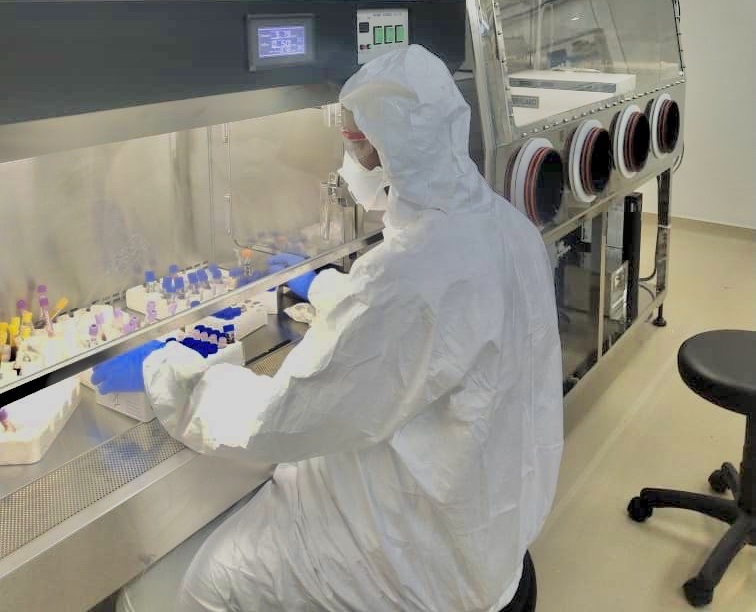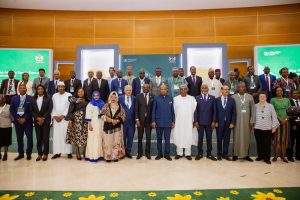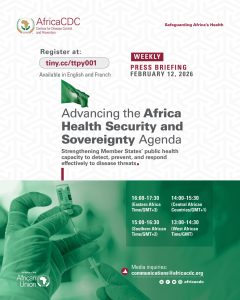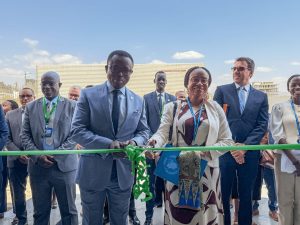ADDIS ABABA, ETHIOPIA, 22 DECEMBER 2020. The Africa Centres for Disease Control and Prevention (Africa CDC) wishes to raise awareness of Member States regarding the new variant of SARS-CoV-2, the virus that causes COVID-19, which was reported in South Africa and the United Kingdom over the past week. Africa CDC is closely following up with authorities in South Africa, where the variant was first identified in Nelson Mandela Bay and has rapidly spread through the Eastern and Western Capes, as well as KwaZulu-Natal.
This new variant is defined by multiple non-synonymous mutations in the spike (S) protein. Three of these mutations are located on the receptor-binding domain (RBD) of the spike protein – the most notable being the N501Y mutation on the receptor binding motif that binds to the human Angiotensin Converting Enzyme-2 (ACE2) receptor.
Preliminary analyses from South Africa and the United Kingdom suggest that this new variant may be associated with increased transmissibility and a higher viral load than the previously circulating variants.
However, researchers are conducting further investigations on this new N501Y variant to determine if it is more infectious, more transmissible, or has the potential to cause more severe illness. Research is also being conducted to assess the impact of the mutations on the performance of existing molecular diagnostics, serological assays, therapeutics, and vaccines.
On 21 December, Africa CDC convened an emergency meeting of the Africa Taskforce on Coronavirus Response (AFTCOR), where the Network for Genomics Surveillance in South Africa, led by Prof. Tulio de Olivera and Prof. Salim Abdool Karim, shared findings from South Africa. The meeting discussed what is known, what is not known, and what needs to be done about this new variant. The Taskforce recommends the following:
- Africa CDC Institute for Pathogen Genomics (IPG) and WHO to immediately coordinate further actions by a continental network of clinical laboratory centres of excellence to enhance surveillance of the new variant virus.
- Member States should enhance implementation of ongoing public health and social measures to prevent further transmission of COVID-19, including correct and consistent mask-wearing, physical distancing and hand hygiene.
- There is no immediate need to restrict trade and travel across the continent, because travellers across the continent now require a negative virologic test (PCR or Antigen test) before they can travel.
- All stakeholders should support and contribute to the rapid sharing of data across the continent.
Recommendations to Member States and health authorities
Coincidentally, the news of this variant has come when the continent is also experiencing a second wave of the COVID-19 pandemic. Therefore, Africa CDC advises that Member States reinforce their efforts to increase testing, contact tracing and early treatment of cases while we seek to gain more insight about the impact this new variant could have on testing accuracy, clinical outcomes and vaccine efficacy.
Specifically, we recommend that:
- Member States increase general awareness of the new variant and take timely measures to monitor, prevent and control its spread.
- Public health laboratories and researchers should strengthen collaboration and coordination with national and regional pathogen genomics laboratories in order to conduct genomic surveillance and sequencing of the virus in a timely manner. The Africa CDC IPG, through the Africa Pathogen Genomics Initiative, will support this coordination at the continental level.
- Member States should notify Africa CDC immediately if they identify any new SARS-CoV-2 variant.
- Member States should enhance community-based surveillance for early identification of hotspots and continue to encourage community members to adhere to public health and social measures for their protection.
- Member States and Africa CDC Regional Collaborating Centres should enhance surveillance and cross-border health measures at ports of entry, but there is no immediate need for restrictions on travel and trade.
Africa CDC will continue to monitor the situation and provide updates to Member States and the public as more information becomes available about this SARS-CoV-2 variant.
Additional resources
- Detailed presentations on the 501Y.V2 by Prof. Tulio de Oliveira and Prof. Salim Abdool Karim on what we know, what we do not know and what does mean for the pandemic in Africa (https://www.krisp.org.za/ngs-sa/).
- A simple Question and Answer section produced by the South Africa Department of Health is also available at (https://www.krisp.org.za/news.php?id=460)
Information on the U.K. lineage is available the COVID-10 Genomics UK Consortium Website (https://www.cogconsortium.uk/news/) and on virological.org website (https://virological.org/t/preliminary-genomic-characterisation-of-an-emergent-sars-cov-2-lineage-in-the-uk-defined-by-a-novel-set-of-spike-mutations/563)
For more information, contact:
Dr Sofonias Tessema
Africa CDC, Addis Ababa, Ethiopia
SofoniasT@africa-union.org
Thomas Ngbonga
Communication and Web Officer
Africa CDC
zindotealas@africa-union.org
Prof. Tulio de Oliveira
Director, KwaZulu-Natal Research Innovation and Sequencing Platform (KRISP)
Durban, South Africa
deoliveira@ukzn.ac.za







